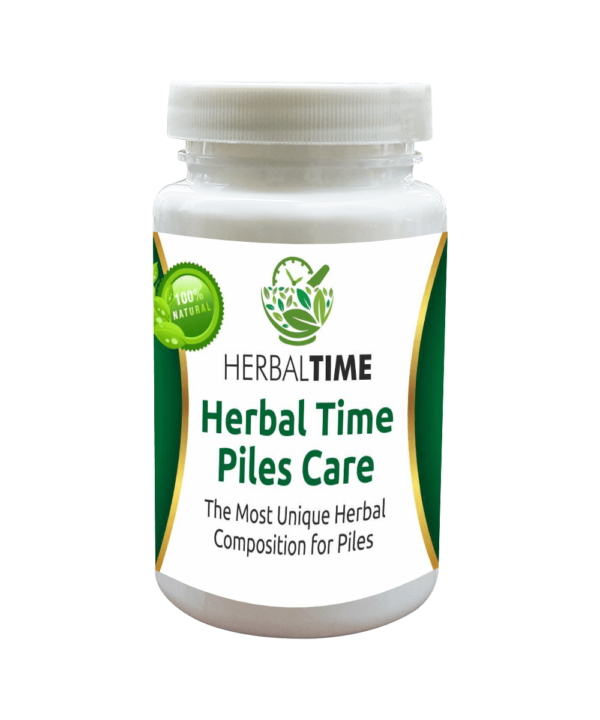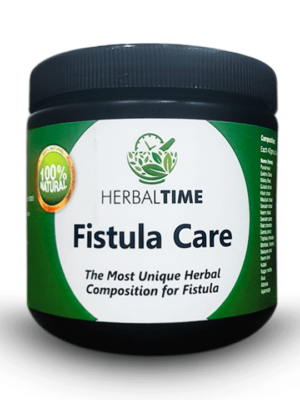Call Us: +91-9999006087Email Us: info@herbaltime.in

Herbal Time Piles Care
₹2,550.00
We all understand that piles can be extremely painful and can limit a person’s ability to carry out their daily activities. With the assistance of herbal piles care product from Herbal Time PVT LTD., you can effectively eliminate your piles without the need for invasive surgery.
Haemorrhoids are also referred to as piles. These blood vessel formations may be found in the anal canal. These cushions help to maintain the balance of the stool. When they enlarge or become inflamed, they can develop into an illness. There are two types of haemorrhoids: external and internal. Internal haemorrhoids can be identified by the presence of painless rectal bleeding that occurs during bowel movements. External haemorrhoids are characterised by pain and swelling in the area surrounding the anus.
It is important to follow the recommended dosage instructions for the Herbal Time Piles Care capsules while undergoing treatment. The herbal ingredients in this medication work together to effectively reduce symptoms such as bleeding, inflammation, pain, discharge, and itchiness. They also strengthen the lax muscles in the anal cavity and reinforce the anal mucosa.
Here are the natural treatment for piles/hemorrhoids/fissure/fistula
Haemorrhoids, commonly referred to as piles, are enlarged veins in the rectum or anus that result from the continuous pressure exerted during bowel movements. Varicose veins, commonly referred to as pile disease, are a medical condition. It is an unpleasant experience that can lead to irritation and bleeding. There are two types of this condition: internal haemorrhoids and external haemorrhoids. Haemorrhoids can be classified as either internal, meaning they appear inside the rectum, or external, meaning they appear under the skin around the anus. Globally, this illness typically affects approximately 25% of the population. The herbal treatment for piles/hemorrhoids/fissure/fistula can be quite effective in this case.
An internal pile typically consists of three stages
At first, patients typically do not experience any discomfort from the presence of blood after a bowel movement.
During the second phase, a mass may protrude from the rectum after defecation, and there is no discomfort related to the bleeding.
Reducing the size of the third-stage ile without extreme measures is notoriously challenging. However, even minimal physical activity like coughing, walking, or sitting can cause some of its contents to be released.
Ayurveda recognises three subtypes of haemorrhoids. The body’s energy, also known as dosha, can be categorised into one of the following types.
Cash in hand
Patients with Pitta Dosh may experience haemorrhoids that are sensitive, red, and prone to quick bleeding. Additional potential side effects may include diarrhoea, fever, and extreme thirst.
Individuals with Vat Dosh may experience intense pain, constipation, and the formation of black or rough haemorrhoids. Choosing the ayurvedic treatment for piles/hemorrhoids/fissure/fistula can be useful at every level.
Haemorrhoids that are light, soft, and large are frequently observed in individuals with a high amount of Kapha Dosha. This is due to their difficulty in digesting food.
The following are some of the many symptoms of a haemorrhoid:
- Symptoms include itching and pain at the feet
- A sensation that the bowels are still partially full.
- Abnormal intestinal bleeding that does not cause any pain during or after passing gas or having a bowel movement
- Having irregular bowel movements
Here’s how haemorrhoids are identified: The disease may be diagnosed by studying the patient’s medical history and doing a rectal exam.
Information on the patient’s bowel movements, the appearance of their bleeding, and the health of their immediate family members should be included in the patient history.
Inspection of the Rear End There are two parts to a full rectal examination.
The doctor will examine the patient’s rectum using gloved fingers as part of the exam.
Proctoscopy or Anoscopy involves the examination of the rectal lining using a proctoscope
Complications linked with Piles
If the patient does not decide to get it treated, it might develop into a serious health problem. The most common complication, known as “Strangulation,” happens when an obstruction in the blood supply causes gangrene or the death of tissues. Persistent bleeding may lead to anaemia, which the patient may be experiencing. As a result, you’ll feel exhausted and frail. As a result of guaranteed treatment for piles/hemorrhoids/fissure/fistula you can have a proper respite here.
What Cause Hemorrhoids?
Its root cause remains unknown. Its root cause remains unknown. Constipation that doesn’t go away, pregnancy, and inactivity are all risk factors. It may sometimes occur as a result of eating a diet low in fibre and deficient in fluids.
Proper Respite from Piles/Hemorrhoids/Fissure/Fistula?
Safety against Bleeding and Fistulas
The best prophylactic approach against constipation is herbal treatment. Your poop should be on the softer side so that it easily flows through your system and doesn’t cause any discomfort. The information presented here is intended for your use.
Be sure to hydrate often throughout the day
You should drink more water than usual to stay hydrated now. You should avoid alcohol and drink plenty of fluids now to keep from being constipated. Fried, dry, or overly spiced vegetables are unhealthy and should be avoided.
Consume lemon juice to stop excessive bleeding
The bleeding may be stopped by include lemon juice in your diet. There is some evidence that lemon may help halt bleeding. It alleviates distress and eliminates inflammation.
Avoid dried red chillies in ground form
Stop using red chilli powder immediately since keeping it in your diet will only make your condition worse. Instead of using red chilli powder, use green or black pepper.
Avoid pickles and other odd combinations
You shouldn’t eat pickles since they’re a spicy relish that might cause constipation. Avoid potatoes and other root foods as well (excluding radishes and carrots). In general, eating pickles may lead to dehydration due to the high levels of salt they contain.
Fiber-rich whole foods should be a part of your daily diet
Fruits, vegetables, and grains are great examples of high-fiber meals that should make up the bulk of your diet. Consuming 20-30 grams of fibre everyday may help with digestive difficulties including gas and constipation. Fibre may improve digestion because of its bulk.
- You should go as soon as you feel the need to do so.
- If you hold off on defecating, it will be more difficult for the waste to leave your body. Don’t give in to your urges the moment you feel them.
- Make physical exercise a regular part of your routine.
If you want to stay active and prevent constipation, you should include regular exercise into your schedule. In addition to aiding in natural hydration, regular exercise also increases blood flow everywhere in the body.
100% Ayurvedic Treatment For Piles/Hemorrhoids/Fissure/Fistula
Pile and Haemorrhoid Disorders: A Natural Treatment
Natural, non-surgical treatments for piles and haemorrhoids are available today. Consider using Ayurveda, which is among the most successful approaches to this problem.
Kshar Karma, the Spiritual Path
Kshar Karma Therapy, sometimes called Caustic Therapy, is a powerful Ayurvedic treatment that calls for minimally invasive surgery. It’s an alkaline concoction made from plants and plant byproducts. By incorporating kshar into the pile material, the overall volume may be reduced. It stops the bleeding and causes the piles wart to shrink. In this herbal treatment plan, surgical intervention is not required.
Therapy Kshara Sutra-derived
Preparation of various medicinal plants is an integral part of the Kshara Sutra Therapy as it is commonly done. Depending on the circumstances, the patient may get either local, spinal, or general anaesthetic. The Kasha Sutra serves as the glue that holds the heap together, but it eventually dissolves and the pile collapses. The Kasha Sutra is re-established whenever it is required. The patient may go home immediately after surgery without having to recuperate in a hospital.
If you have the condition in the future, you should decide as soon as possible that you will treat it with herbs. Before allowing it to hurt your body, you should give it serious thought. Our Ayurvedic Physician is happy to provide a no-cost consultation. “Herbal Time Piles Care,” which does not include any chemicals, is for sale in our shop. It’s a great natural remedy for your condition.
Ayurveda Diet Plan For Piles/Hemorrhoids/Fissure/Fistula
Use Aloe Vera
Aloe vera may be effective in reducing inflammation. It will be a huge help in many ways. The gel produced by the plant may be extracted and applied topically to the sore spot. Not only that, but it also reduces pain.
Use either psyllium husk or isabgol
Psyllium husk, often called isabgol, is one of the most effective therapies for constipation. You should take one or two teaspoons of it with a warm beverage like milk or water just before bed.
Natural Diet Plan For Piles/Hemorrhoids/Fissure/Fistula
The diet plan for fifteen days or one month depends on the Dosha of your body. Our doctor will determine the Dosha and suggest what you must include in your meals. The specialist will manage the progress in your health. You should follow Natural diet plan for piles/hemorrhoids/fissure/fistula for getting better results. The severity of the disease also plays a crucial role in deciding a diet plan for you.
Those who have been given this diagnosis may benefit from a natural diet tailored to their needs.
Below is a sample of the fifteen-day natural Indian diet plan for curing piles, haemorrhoids, fissures, and fistulas.
Sleeping into the morning on an empty stomach
Just a glass of warm water with a slice of lemon, please.
Breakfast
A bowl of oats, some milk, and a little apple or banana.
Mid-morning
Buttermilk in a cup or yoghurt or curd in a bowl.
Lunch
Curd, one and a half cups Two rotis (made with wheat flour or multigrain flour that also includes bran), 1.5 cups of brown rice, 1 cup of cooked pulses (daal), and 1 cup of steamed spinach (palak) are examples of a healthy Indian meal.
OR
A serving of polenta (Mung Daal and Rice prepared in a Khichadi), a serving of palak (cooked spinach), and a serving of kadhi (curd) make up a typical Indian meal.
Evening munchies
Carrot and coriander juice in a glass.
Cooked sprouts up to half a cup.
Mid-Evening
One cup of vegetable broth that has not been filtered, one tablespoon
Dinner
Take in the recommended serving size as written on the box lunch.
Bedtime
Grab a warm glass of water from the table.
No matter what you decide to eat based on how hungry you are, you should try to stick to a diet that contains little to no oil and no spices or ginger.
If you have piles, haemorrhoids, fissures, or fistulas in addition to diabetes, heart problems, acidity, or any other health condition, you should see your doctor about the diet you should follow.




Reviews
There are no reviews yet.